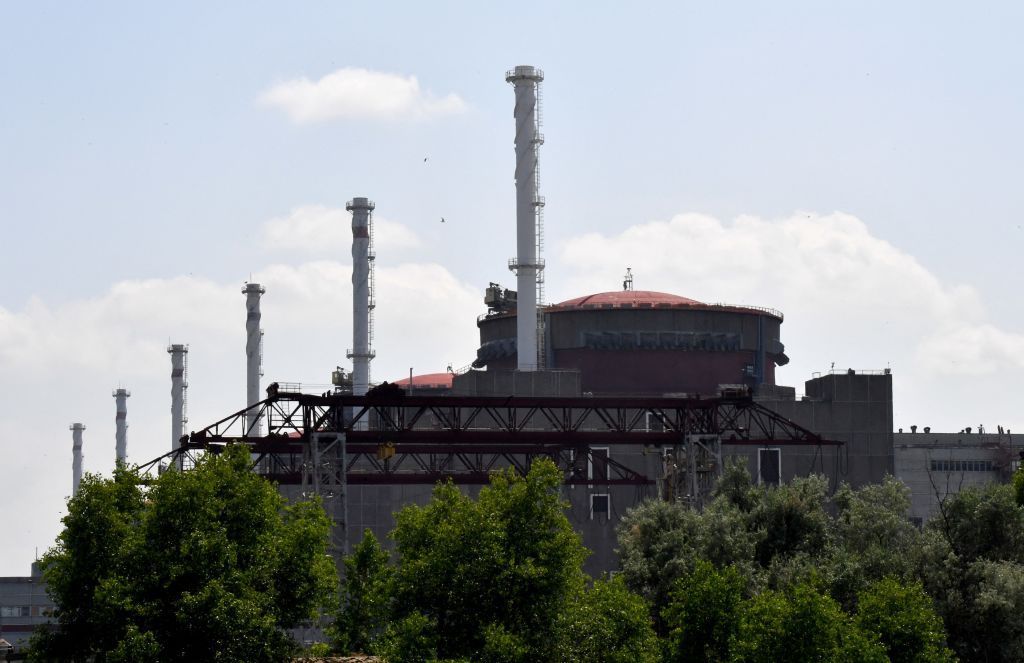The recent attacks on the Russian-occupied Zaporizhzhia Nuclear Power Plant (ZNPP) have raised concerns about nuclear safety in Ukraine, prompting the International Atomic Energy Agency (IAEA) to hold an extraordinary meeting. The attacks, which reportedly involved at least three direct strikes on the plant, were the first confirmed strikes since November 2022. The IAEA Director Rafael Grossi called these attacks a “major escalation” in nuclear safety danger and emphasized the importance of protecting nuclear facilities. While Russia claimed that Ukrainian drones were responsible, Ukraine denied involvement and called the attacks a provocation by Russia. Grossi stressed the need for military restraint and adherence to principles for protecting the ZNPP to prevent a nuclear accident.
Grossi also plans to address the U.N. Security Council about the attacks on the ZNPP, highlighting the increased risk of a nuclear accident at the site. Energoatom, Ukraine’s nuclear energy agency, stated that compliance with the IAEA’s resolution, withdrawal of Russian troops and equipment from the plant, demining nearby territories, and returning control over the plant to the agency are necessary measures to prevent nuclear and radiation emergencies. The Zaporizhzhia Nuclear Power Plant, the largest nuclear plant in Europe, has been under Russian occupation since March 2022, leading to repeated disconnects from the Ukrainian power grid due to Russian attacks on energy infrastructure. Russian troops have also used the plant as a platform to launch strikes at nearby Ukrainian settlements, increasing the threat to the region.
The situation near the Russian-occupied nuclear plant has created an atmosphere of uncertainty and fear for residents in the area. Despite the ongoing conflict and threats, some residents have chosen to remain in Enerhodar, while others have fled while still maintaining ties to the city through family members. The capture of Enerhodar by Russian soldiers has left residents unsure about the future, with concerns about safety and the potential for further attacks on the nuclear plant. The impact of the occupation on daily life and the risk of living in a conflict zone have left residents feeling uncertain about what tomorrow may bring, emphasizing the need for continued international support and attention to the situation.
The attacks on the ZNPP have underscored the dangers of targeting nuclear facilities and the potential consequences of such actions. Grossi’s insistence on protecting nuclear facilities and ensuring adherence to safety measures highlights the critical need for maintaining nuclear safety in conflict zones. The occupation of the ZNPP by Russian forces has not only threatened the safety of the plant but also posed risks to surrounding areas and increased tensions in the region. It is imperative for the international community to address these threats and work towards a peaceful resolution to prevent further escalation of the conflict and protect the safety and security of all those affected by the ongoing crisis.
As efforts continue to address the situation at the Zaporizhzhia Nuclear Power Plant and prevent further attacks, the need for support for independent journalism in Ukraine remains crucial. By staying informed and engaged with developments in the region, individuals can contribute to raising awareness about the challenges faced by Ukrainian communities and advocating for peace and stability in the area. The ongoing conflict in Ukraine requires sustained attention and action from the international community to uphold nuclear safety standards, protect vulnerable populations, and work towards a resolution that ensures the well-being of all those impacted by the crisis. By supporting independent journalism and staying informed about the situation in Ukraine, individuals can play a role in advocating for peace, justice, and security in the region.


